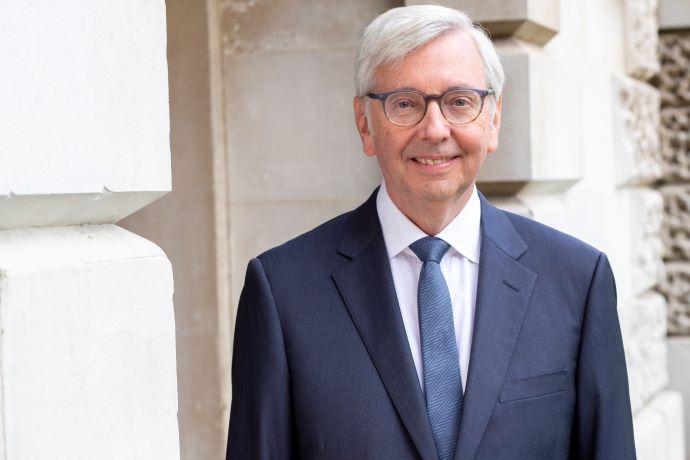The Dear World… Yours, Cambridge campaign was publicly launched in 2015 to raise £2 billion. Thanks to the generosity of alumni and supporters, a total of 2.2 billion has been raised to date to attract the brightest minds regardless of background or means, create the resources and environment for world-class research and ensure that Cambridge remains uniquely placed to address society’s most pressing challenges, in the UK and the rest of the world.
Largest campaign in Cambridge’s history, ‘Dear World... Yours, Cambridge’, delivers impact on every continent.
The campaign for the University and Colleges of Cambridge, the largest in Cambridge’s history, has closed after surpassing its target. From Europe to Antarctica, the campaign has successfully turned philanthropy into impact reaching every continent.
“I am sincerely grateful to the community of donors who have shown their commitment to helping some of the brightest minds not only get to Cambridge and thrive here, but also to create more world-changing ideas,” said emeritus Vice-Chancellor Professor Stephen J Toope, who led the University during the last five years of the campaign. "We can all take pride in the campaign's remarkable achievements."
The campaign launched publicly in 2015 during Professor Sir Leszek Borysiewicz's tenure as Vice-Chancellor, with £500 million already raised. More than 80,000 alumni donated to the University and Colleges throughout the campaign, as well as committing thousands of volunteer hours to Cambridge. 400 academic-related posts received philanthropic support in subjects ranging from crop science to climate law. And Cambridge's world-leading research in areas like the early detection of cancer, public policy and rethinking the measures of economic progress, and understanding the causes of neurodegnerative diseases like Alzheimer's and Parkinsons have all been advanced as a result of the campaign.
Expanding student support
Enhanced financial support for undergraduate and postgraduate students was one of the key objectives of the campaign.
For undergraduates, programmes like Get in Cambridge and Stormzy scholarships mean that students from historically underrepresented groups have fewer barriers to studying at Cambridge than ever before.
For postgraduates, scholarships like the Harding Distinguished Postgraduate Scholars, Cambridge Opportunity Scholarships and Wolfson Postgraduate Scholars in the Humanities ensure that Cambridge remains attractive and more financially accessible to a global academic community.
Extracurricular activities and wellbeing and mental health provision are essential to a well-rounded student experience. New facilities and programmatic support for athletic performance ensure a rich sporting experience. The Colleges and University continue to increase support for student mental health and wellbeing, bolstered by philanthropic investment.
Transforming the landscape
The campaign has accelerated the transformation of Cambridge's skyline.
The Ray Dolby Centre will become the home for the Department of Physics in the new Cavendish Laboratory. It will be further enhanced by a new fund for Excellence in Physics, ensuring that talented physicists from around the world, from postdocs to professors, will be able to lead research that could radically change our understanding of the universe.
The Jeffrey Cheah Biomedical Centre is at the heart of the Cambridge Biomedical Campus, where vital research is happening at the Milner Therapeutics Institute and the Cambridge Institute of Therapeutic Immunology and Infectious Disease (CITIID).
In central Cambridge’s New Museums Site, the Museum of Zoology and the Arup building have been revitalised through forward-thinking renovations. Now known as the David Attenborough building, it houses the Cambridge Conservation Initiative and the Museum of Zoology.
And the city centre's old telephone exchange on Regent Street has become the new home for the Cambridge Institute for Sustainability Leadership, following an extensive renovation focused on making it an environmentally sustainable building.
Responding to global challenges
Now more than ever, our work takes place on a global scale. And the campaign expanded its focus to respond to emerging global challenges.
The Cambridge Zero initiative was launched in 2019 to harness the University’s expertise in response to the climate crisis and has already begun to attract philanthropic support.
Philanthropy offered ways for Cambridge to respond to global events such as the Covid-19 pandemic and the war in Ukraine. Many donors supported Covid-19 research and student hardship funding as well as helping those affected by war, including medical students from Kharkiv, Ukraine who secured placements in Cambridge.
Campaign leadership
Under the leadership of co-chairs Dr Mohamed El-Erian (Queens’ 1977) and Sir Harvey McGrath (St Catharine’s 1973) the campaign sought to ensure the brightest minds would be able to thrive at Cambridge, through increased scholarships and bursaries, new endowed teaching and research posts, and the creation and renovation of world-class facilities.
“It’s been an honour to serve as co-chairs of this campaign, and to be able to give back to Cambridge. Our undergraduate experiences here were transformative. We want to ensure future generations of exceptional students, from all backgrounds, have the opportunity to access a Cambridge education and drive the discoveries of the future.”
Campaign co-chairs Mohamed El-Erian and Harvey McGrath
Looking to the future
Dr Anthony Freeling, Acting Vice-Chancellor, said, “The Collegiate University has benefited from philanthropy in countless ways over the course of the campaign and fundraising at Cambridge has never been in a stronger position. All those involved across the Colleges and University should be proud of what they have helped achieve in the campaign.”
While remarkable progress has been made as a result of Dear World... Yours, Cambridge, our world faces further significant challenges. From finding and stopping cancer sooner and halting climate change, to increasing student support and improving the care of sick children, to name but a few ongoing priorities, philanthropy will continue to play a vital role in enabling Cambridge to respond.
Image: Vice-Chancellor, Professor Stephen Toope
Reproduced courtesy of the University of Cambridge



